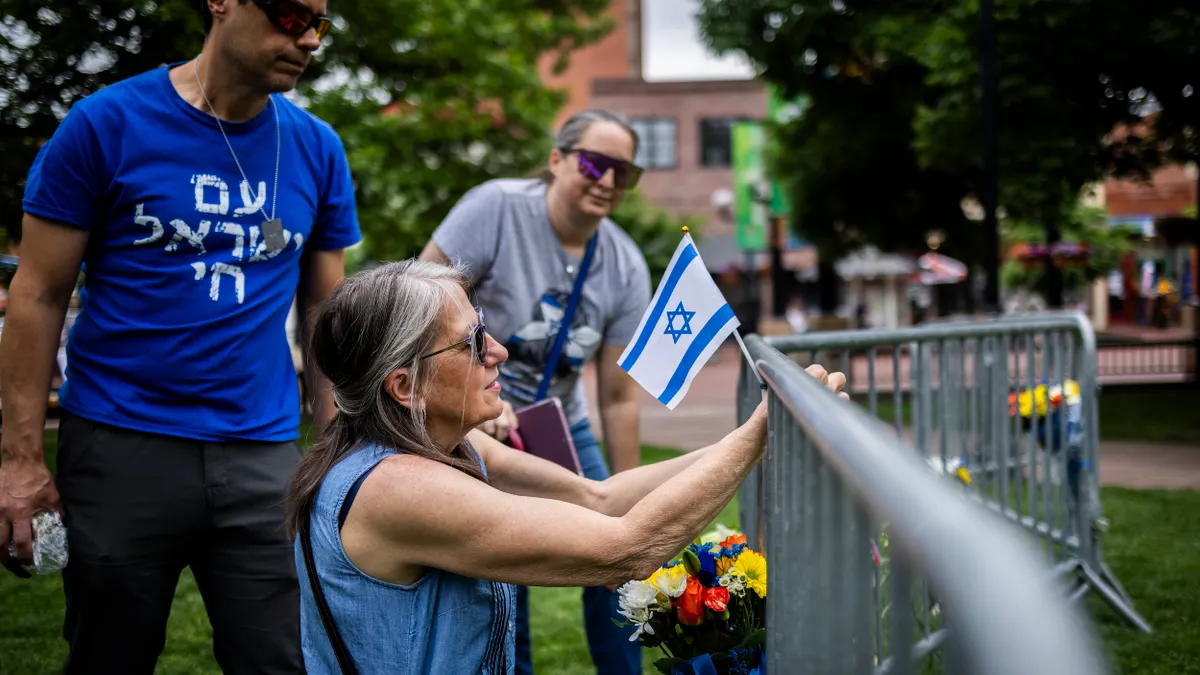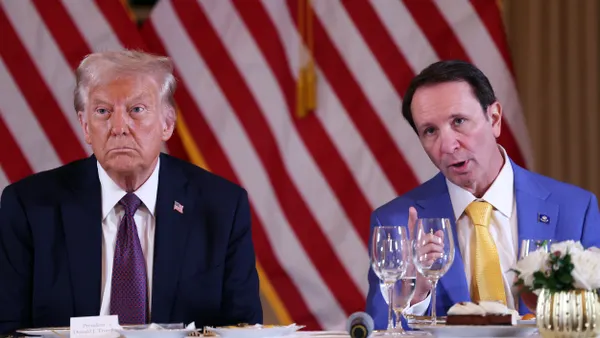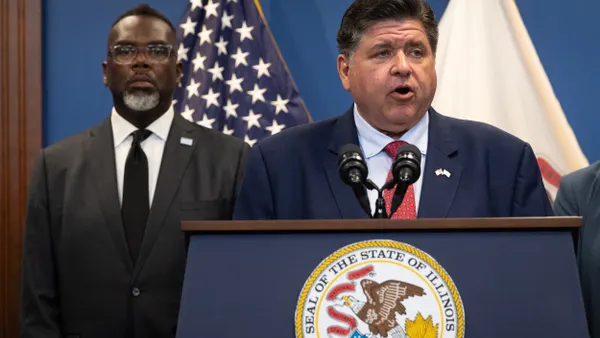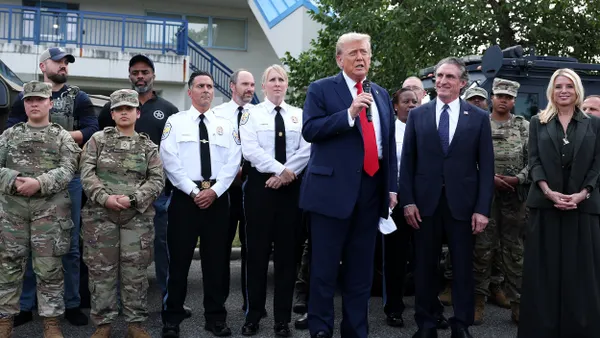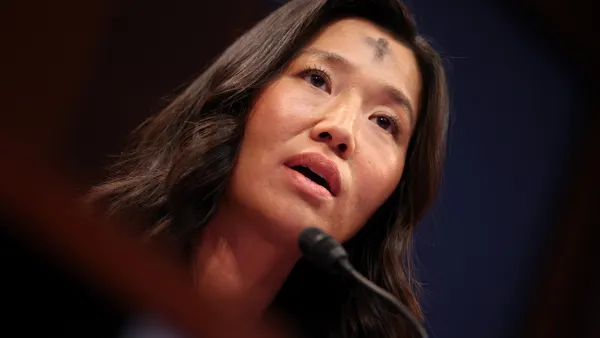Dive Brief:
-
New York, Los Angeles and Washington, D.C., are among the cities stepping up security and conducting extra patrols at synagogues and Jewish community centers following a terror attack directed at a group calling for the release of hostages from Gaza in Boulder, Colorado, on Sunday.
-
More than 700 mayors have signed an initiative of the American Jewish Committee and the U.S. Conference of Mayors calling upon mayors, municipal leaders and other elected officials to condemn antisemitism and support efforts to prevent “extremist indoctrination and recruitment” and expanded education programs “to counter intolerance and discrimination.”
-
Though mayors do what they can to prevent hate crimes, “acts of antisemitism and other forms of hate have been increasing at an alarming rate in recent years,” U.S. Conference of Mayors President Andrew Ginther said in a Monday statement.
Dive Insight:
The Anti-Defamation League has documented nine terrorist plots or attacks targeting Jews, Zionists or Jewish institutions in the U.S. within the past year – a “sharp increase compared to the seven incidents recorded over the previous 54 months.”
The Boulder attack follows two other high-profile incidents that have shaken the Jewish community in the past two months. In April, Pennsylvania Gov. Josh Shapiro’s official residence was firebombed. In May, two Israeli Embassy staff members were killed outside the Capital Jewish Museum in Washington, D.C.
“Americans, from the President, every member of Congress, and elected officials everywhere, to all our citizens, must do more to fight this threat,” Michael Masters, national director and CEO of Secure Community Network, a safety and security organization for the Jewish community, said in a statement. SCN states it is working with local law enforcement and the FBI to investigate the attack. “An attack on the Jewish community is an attack on religious freedom and our democracy. It’s time for more action,” Masters added.
In May, New York City Mayor Eric Adams established the Mayor’s Office to Combat Antisemitism – the first of its kind in a major U.S. city – in response to “an unprecedented rise in antisemitism in New York City and across the entire country.” The New York City Police Department reported that 54% of all hate crimes in the city were against Jewish New Yorkers in 2024; in the first quarter of 2025, that number rose to 62%.
“Combating antisemitism requires a sledgehammer approach: coordinated, unapologetic, and immediate,” said Moshe Davis, executive director of the antisemitism office.
City officials “have to engage with other elected officials and community members in different civic organizations” to “build meaningful connections and bridges,” said Rachel Fish, an advisor to the Brandeis University President’s Initiative on Antisemitism who co-founded Boundless Israel, a think-action tank that partners with community leaders to combat antisemitism. She called for more education and training for law enforcement officers “to navigate this very tumultuous moment.”
“Law enforcement needs to understand contemporary expressions of Jew hatred,” Fish said. “It’s not just a white supremacist, it’s not just a swastika. When you hear chants of globalizing the intifada, when you have individuals who are targeting Zionists and Jews because of their support for freeing the hostages from Gaza, law enforcement and elected officials have to take it seriously. They can’t assume it’s merely rhetoric.”
Correction: A previous version of this article misstated part of a quote from Rachel Fish. Fish said law enforcement and elected officials should be concerned when there are "chants of globalizing the intifada."



